
Gisborne: The First City to See the Sunrise
Gisborne, nestled on the eastern coast of New Zealand's North Island, is a charming and serene destination known for its stunning natural beauty and rich Maori culture. As the first city in the world to greet the sunrise each day, Gisborne offers a unique and enchanting experience for early risers who can enjoy the breathtaking sight of dawn breaking over the Pacific Ocean. The city is surrounded by lush vineyards and is renowned for its award-winning wines, particularly Chardonnay. Wine enthusiasts can embark on a delightful tour of the local wineries, where they can sample exquisite wines and learn about the winemaking process. Gisborne's culinary scene is equally impressive, with a variety of restaurants and cafes offering delicious, locally-sourced food. For outdoor adventurers, Gisborne boasts pristine beaches perfect for surfing, swimming, and sunbathing. The city's coastline is also ideal for fishing and diving, with plenty of opportunities to explore the vibrant marine life. Inland, visitors can hike through the lush native forests, discover hidden waterfalls, and enjoy stunning vistas from scenic lookout points. Gisborne is steeped in Maori history and culture. The Tairawhiti Museum offers fascinating insights into the region's heritage, showcasing a diverse collection of artifacts and exhibits. Visitors can also experience the warmth of the local Maori community through cultural performances and traditional feasts known as 'hangi'.
Local tips in Gisborne
- Visit Kaiti Hill for panoramic views of the city and coastline. It's a great spot to watch the sunrise.
- Book a wine tour to explore Gisborne's famous wineries and taste some of the region's best wines.
- Check the local surf conditions before heading to the beach, as some spots are better suited for experienced surfers.
- Try to time your visit with local festivals, such as the Gisborne Wine and Food Festival or the Rhythm and Vines music festival.
- Don't miss the Tairawhiti Museum for a deep dive into the region's Maori culture and history.
- Experience a traditional Maori hangi for a unique and authentic taste of local cuisine.
Gisborne: The First City to See the Sunrise
Gisborne, nestled on the eastern coast of New Zealand's North Island, is a charming and serene destination known for its stunning natural beauty and rich Maori culture. As the first city in the world to greet the sunrise each day, Gisborne offers a unique and enchanting experience for early risers who can enjoy the breathtaking sight of dawn breaking over the Pacific Ocean. The city is surrounded by lush vineyards and is renowned for its award-winning wines, particularly Chardonnay. Wine enthusiasts can embark on a delightful tour of the local wineries, where they can sample exquisite wines and learn about the winemaking process. Gisborne's culinary scene is equally impressive, with a variety of restaurants and cafes offering delicious, locally-sourced food. For outdoor adventurers, Gisborne boasts pristine beaches perfect for surfing, swimming, and sunbathing. The city's coastline is also ideal for fishing and diving, with plenty of opportunities to explore the vibrant marine life. Inland, visitors can hike through the lush native forests, discover hidden waterfalls, and enjoy stunning vistas from scenic lookout points. Gisborne is steeped in Maori history and culture. The Tairawhiti Museum offers fascinating insights into the region's heritage, showcasing a diverse collection of artifacts and exhibits. Visitors can also experience the warmth of the local Maori community through cultural performances and traditional feasts known as 'hangi'.
When is the best time to go to Gisborne?
Iconic landmarks you can’t miss
The Works
Experience the vibrant flavors of Gisborne at The Works, a must-visit restaurant on Kaiti's stunning Esplanade, serving fresh, local cuisine in a welcoming atmosphere.
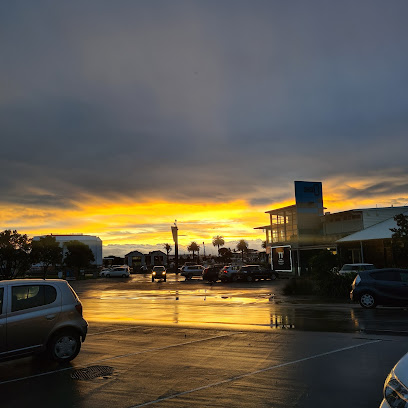
Waikanae Beach TOP 10 Holiday Park
Experience the beauty and adventure of Gisborne at Waikanae Beach TOP 10 Holiday Park, your perfect coastal getaway in New Zealand.
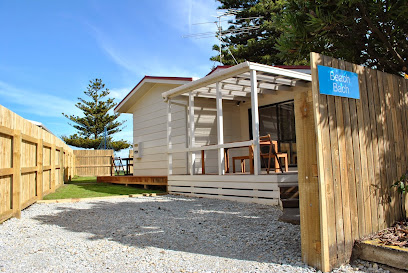
Tairawhiti Museum
Explore the rich cultural tapestry of Gisborne at Tairāwhiti Museum, where art, history, and local heritage come alive in a vibrant setting.
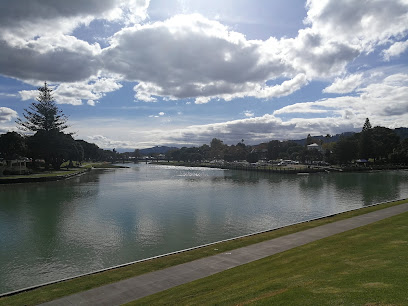
Eastwoodhill National Arboretum of NZ
Explore Eastwoodhill National Arboretum, a breathtaking sanctuary of global flora in New Zealand, perfect for relaxation, events, and unforgettable nature experiences.
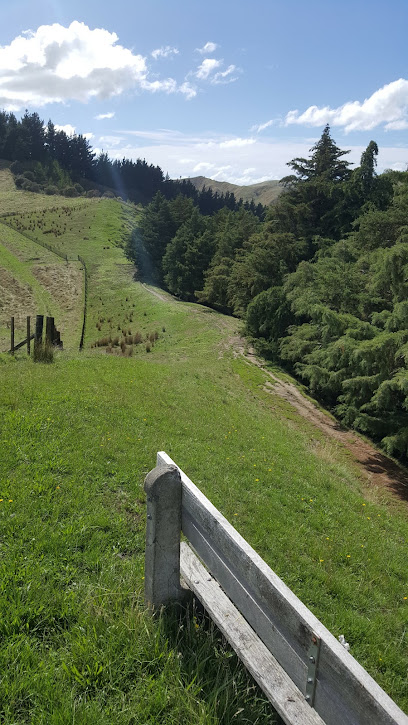
Gisborne Farmers' Market
Experience the vibrant flavors and local culture at Gisborne Farmers' Market, a must-visit destination for food lovers and culture seekers alike in New Zealand.
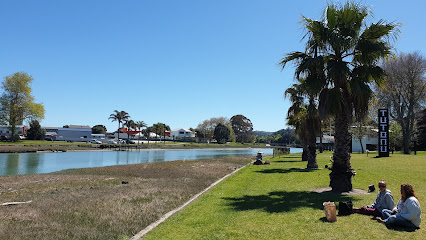
Titirangi Reserve
Discover Titirangi Reserve, a tranquil paradise in Gisborne, showcasing stunning views and rich biodiversity for nature lovers and outdoor enthusiasts.
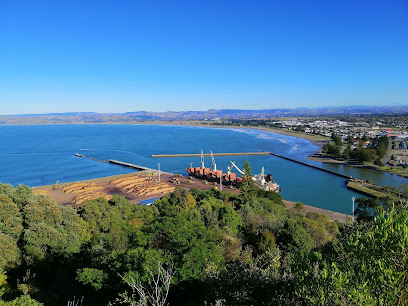
Rere Falls
Experience the breathtaking beauty of Rere Falls in Gisborne, New Zealand—a perfect destination for nature lovers and adventure seekers alike.
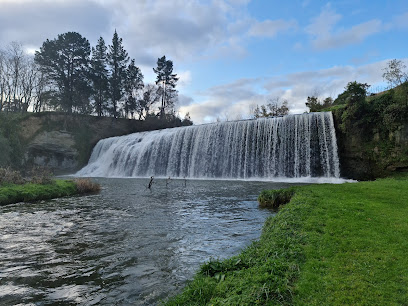
Gisborne isite Visitor Information Centre
Uncover the beauty and culture of Gisborne at the iSite Visitor Information Centre, your essential stop for local insights and exploration.
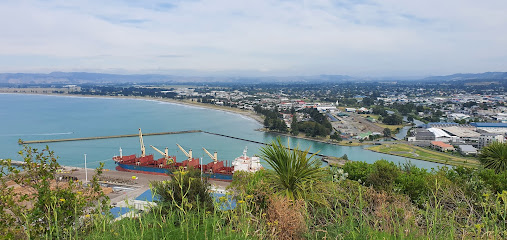
Ussco Bar & Bistro
Discover the exquisite flavors and warm ambiance of Ussco Bar & Bistro in Gisborne, a culinary haven for tourists and locals alike.
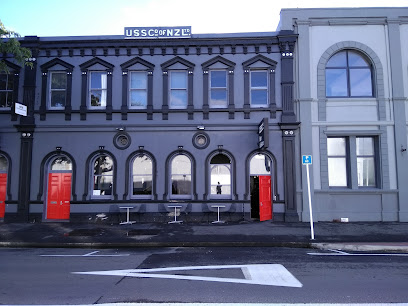
Dome Cinema
Experience the best of Gisborne at Dome Cinema, where dining meets live music and cinema for an unforgettable night out.
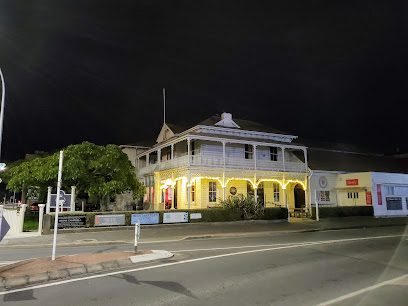
Gisborne Hunting & Fishing New Zealand
Explore the great outdoors with Gisborne Hunting & Fishing - your one-stop destination for hunting, fishing, and camping gear in New Zealand.
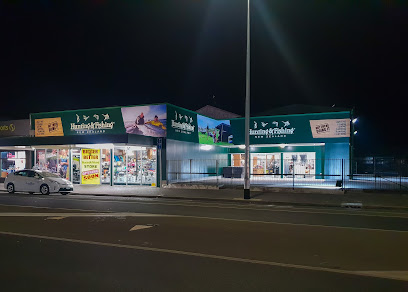
That Hangi Place
Discover the authentic taste of New Zealand at That Hangi Place, where traditional Hangi cooking meets modern convenience in Gisborne.
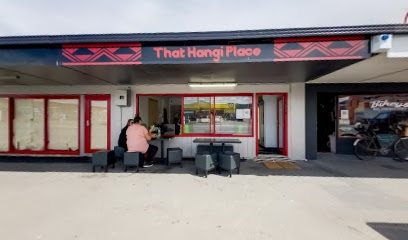
Captain Cook Statue
Explore the rich maritime history at the Captain Cook Statue in Gisborne, an iconic landmark celebrating New Zealand's heritage.
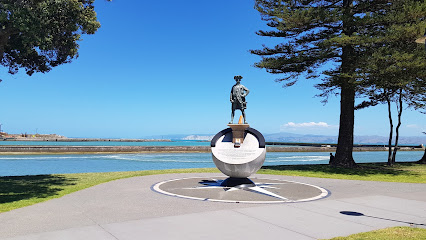
Muirs Bookshop
Explore Muirs Bookshop in Gisborne, a cozy haven for book lovers filled with diverse titles and local literary culture. A must-visit for every traveler!
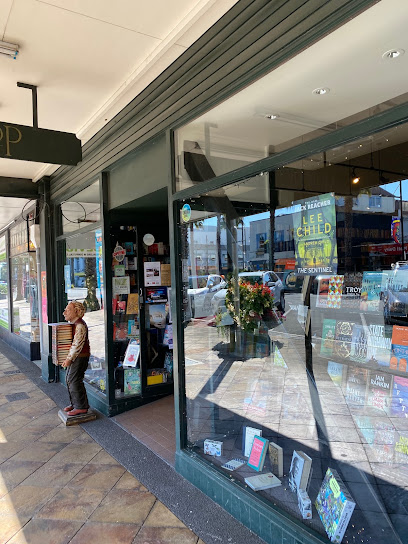
Zephyr Wainui
Discover the flavors of Zephyr Wainui, a vegan and vegetarian cafe in Gisborne, perfect for health-conscious travelers visiting stunning Wainui Beach.
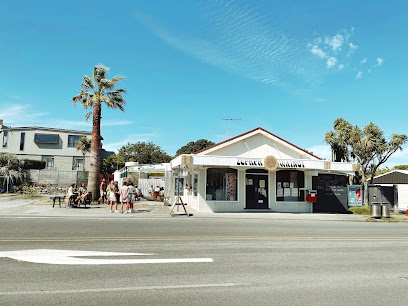
Unmissable attractions to see
Tairawhiti Museum
Explore Tairawhiti Museum in Gisborne for a captivating journey through Maori culture, local art, and the history of New Zealand's stunning East Coast.
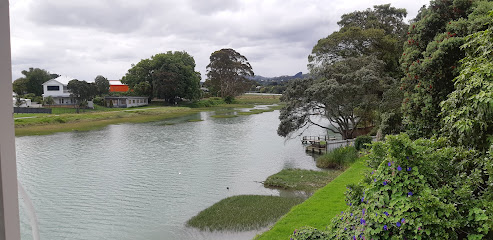
Eastwoodhill National Arboretum of NZ
Discover the stunning Eastwoodhill National Arboretum, a lush sanctuary of trees and plants in New Zealand's Ngatapa, perfect for nature lovers and tranquil outings.
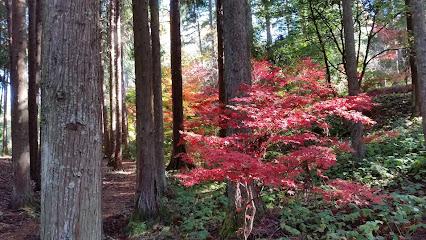
Eastwoodhill National Arboretum of NZ
Explore Eastwoodhill National Arboretum, a lush paradise in Ngatapa, NZ, featuring diverse plant species and stunning landscapes perfect for nature lovers.
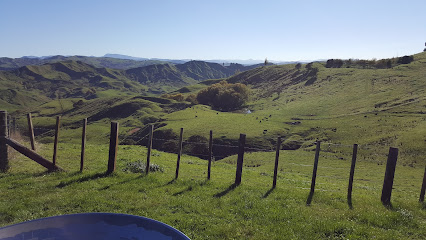
Rere Falls
Experience the natural beauty of Rere Falls, a stunning waterfall near Gisborne, New Zealand, perfect for adventure and relaxation.
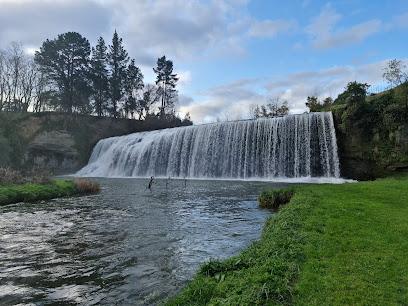
Titirangi Reserve
Experience the tranquility and beauty of Titirangi Reserve, a must-visit park in Gisborne, New Zealand, perfect for nature lovers and outdoor enthusiasts.
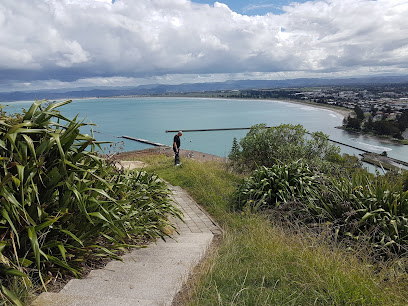
Rere Falls
Discover the stunning Rere Falls in Gisborne, New Zealand, where nature's beauty meets adventure at this hidden gem.
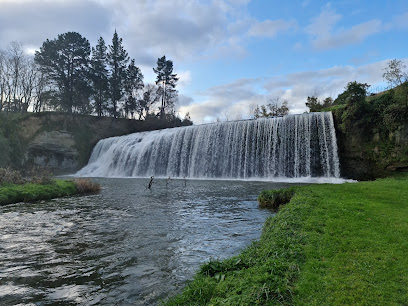
Gisborne Botanical Gardens
Explore the Gisborne Botanical Gardens, a serene park filled with diverse plant life, scenic pathways, and tranquil spots for relaxation in Gisborne, New Zealand.
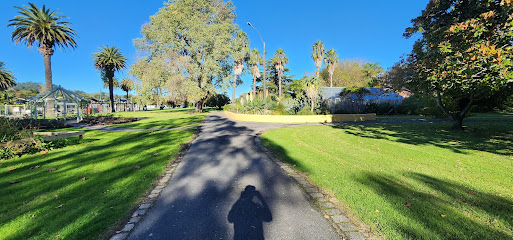
Captain Cook Statue
Explore the Captain Cook Statue in Gisborne, a historical landmark celebrating exploration and maritime heritage amidst stunning coastal scenery.
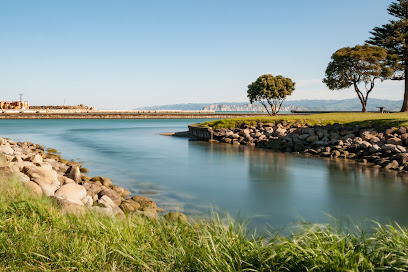
Bushmere Estate
Experience the essence of New Zealand's viticulture at Bushmere Estate Winery, where stunning vineyards and exquisite wines await your discovery.
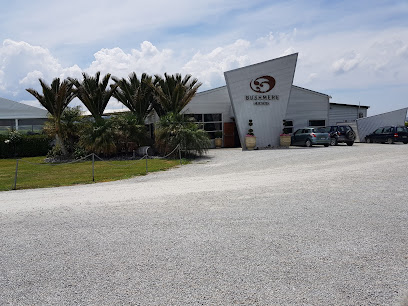
Young Nick Statue
Visit the Young Nick Statue in Gisborne to experience a piece of New Zealand’s maritime heritage and rich history of exploration.
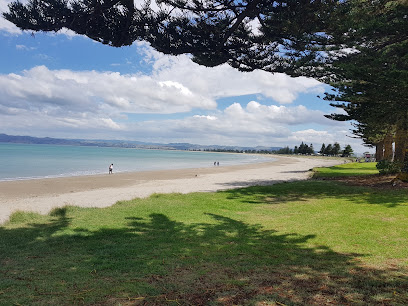
Sponge Bay Beach
Discover the stunning beauty of Sponge Bay Beach in Gisborne, New Zealand, where serene waters meet majestic cliffs for an unforgettable coastal experience.
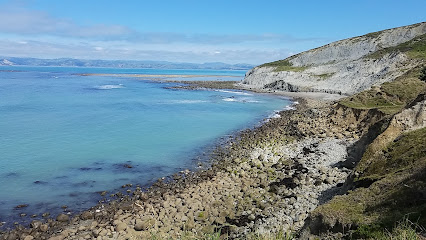
Makorori headland
Experience the stunning coastal trails and breathtaking views at Makorori Headland, a must-visit hiking destination in Gisborne, New Zealand.
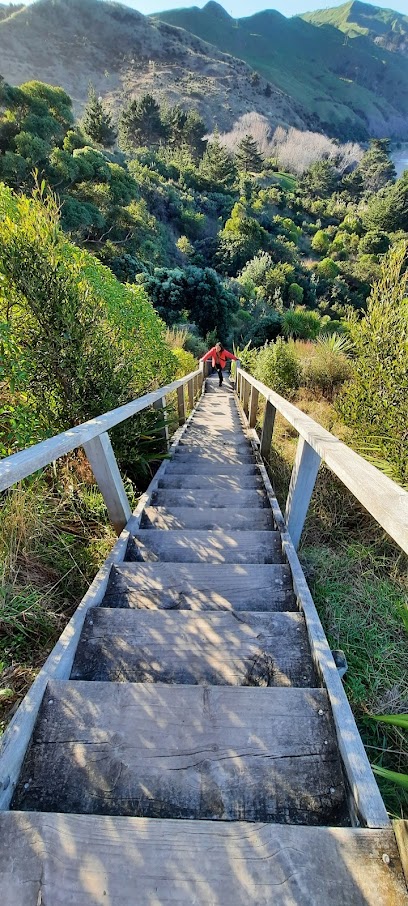
Waikirikiri Park
Experience the natural beauty and serenity of Waikirikiri Park in Outer Kaiti, Gisborne - a perfect getaway for relaxation and recreation.
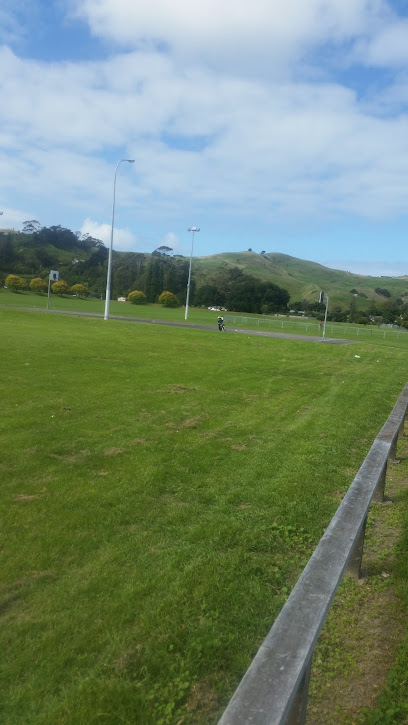
Cook Landing Site National Historic Reserve
Explore the Cook Landing Site National Historic Reserve, a historic landmark where Captain Cook first set foot in New Zealand, surrounded by stunning coastal views.
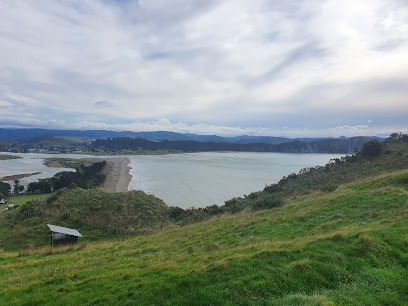
East Coast Museum of Technology
Explore the East Coast Museum of Technology in Gisborne for a fascinating journey into New Zealand's industrial past with interactive exhibits and vintage machines.
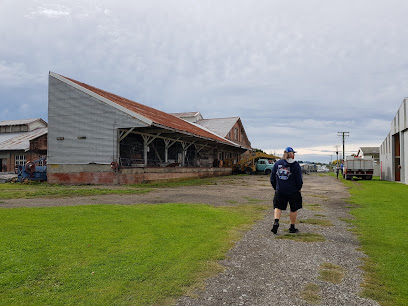
Essential places to dine
The Rivers Restaurant and Bar
Experience the best of New Zealand cuisine at The Rivers Restaurant and Bar in Gisborne – where flavor meets stunning views.
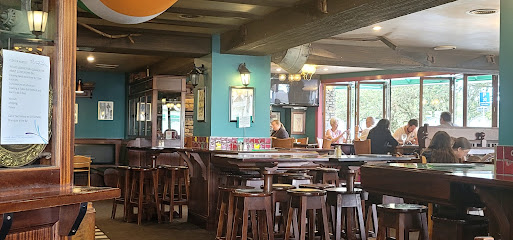
KFC Gisborne
Indulge in crispy fried chicken and delicious sides at KFC Gisborne – your perfect fast food stop in New Zealand!
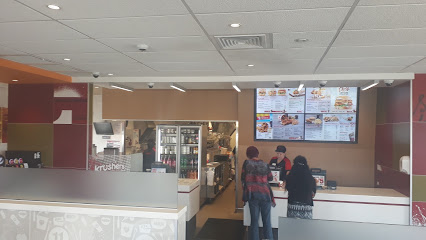
Wharf Bar & Grill
Experience exquisite dining at Wharf Bar & Grill in Gisborne – where fresh local flavors meet stunning waterfront views.
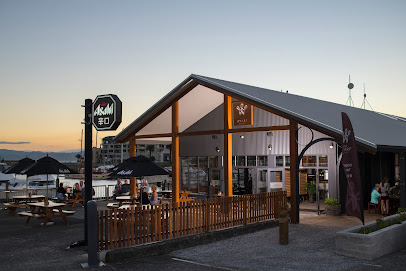
Bollywood Indian Restaurant Gisborne
Savor authentic North Indian cuisine at Bollywood Indian Restaurant in Gisborne – where every dish tells a story.
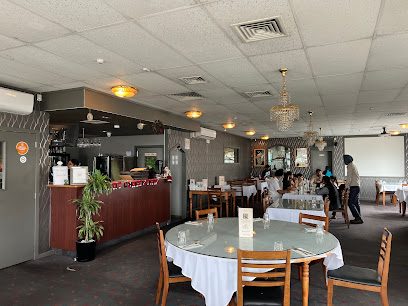
Captain Morgans
Experience delightful dining at Captain Morgans in Gisborne, where local flavors meet warm hospitality in a charming setting.
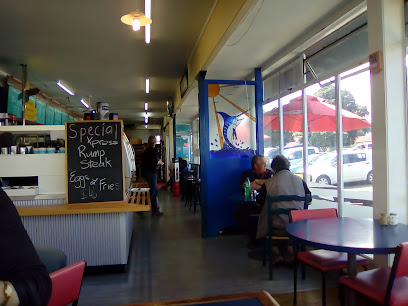
The Works
Experience culinary excellence at The Works in Gisborne - where fresh ingredients meet stunning coastal views.
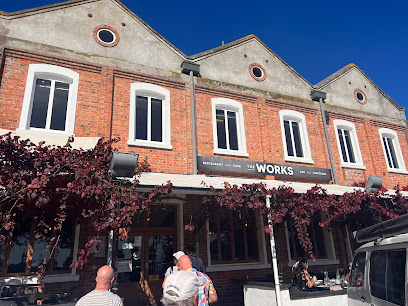
China Palace Restaurant & Takeaway
Experience delightful Chinese cuisine at China Palace Restaurant & Takeaway in Gisborne—where fast food meets authentic flavors.
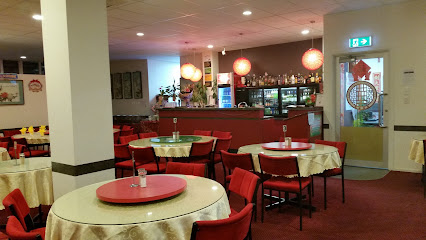
Lone Star Gisborne
Experience the vibrant flavors of New Zealand at Lone Star Gisborne – where local cuisine meets stunning coastal views.
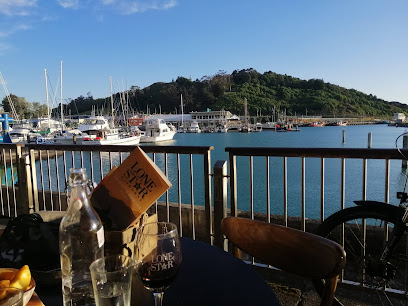
Portofino GISBORNE
Experience authentic Italian cuisine at Portofino Gisborne, where delicious dishes meet a warm atmosphere in the heart of New Zealand.
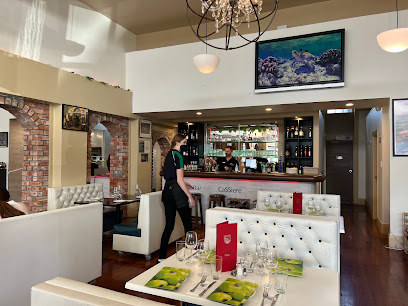
Verve Cafe & Bar
Discover Verve Cafe & Bar: A perfect blend of cozy ambiance, delicious breakfasts, and vibrant drinks in Gisborne.
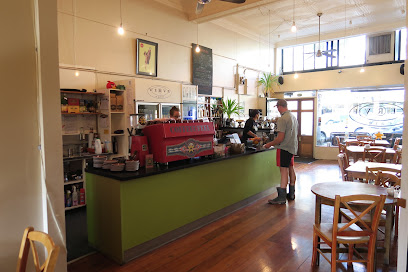
Breakers Gisborne
Discover family-friendly dining at Breakers Gisborne, where delicious food meets warm hospitality on New Zealand's stunning east coast.
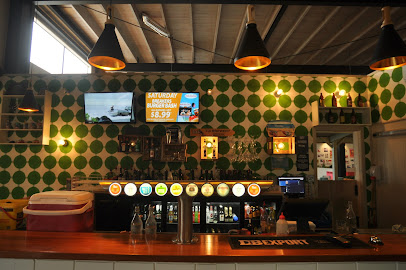
Flagship Eatery
Discover Flagship Eatery in Gisborne: A perfect blend of cozy café vibes with exquisite breakfast and lunch options.
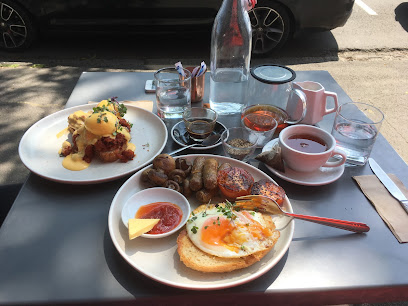
Zest Cafe
Experience the vibrant flavors of Gisborne at Zest Cafe – your go-to destination for breakfast and brunch delights.
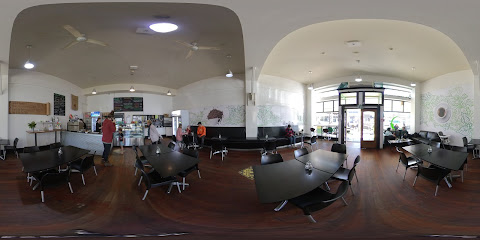
Gisborne Cosmopolitan Club
Discover local flavors and vibrant culture at Gisborne Cosmopolitan Club - your go-to spot for dining and socializing in New Zealand.
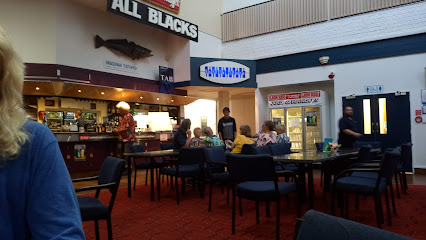
Ussco Bar & Bistro
Discover Gisborne's culinary treasure at Ussco Bar & Bistro - where local flavors meet exquisite dining in an inviting atmosphere.
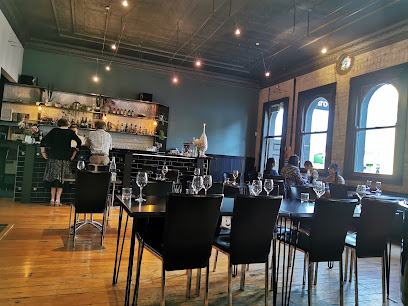
Markets, malls and hidden boutiques
The Warehouse Gisborne
Explore a diverse range of products at The Warehouse Gisborne, your ultimate shopping destination for clothing, home goods, and unique souvenirs.
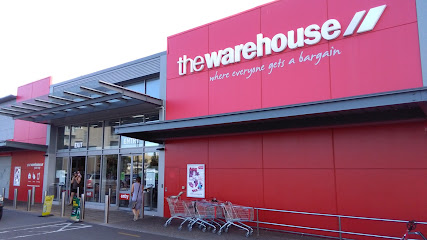
Briscoes Gisborne
Explore Briscoes Gisborne for quality home goods, from appliances to outdoor furniture, perfect for enhancing any living space.

The Stone Studio NZ
Explore The Stone Studio NZ for unique gifts, local crafts, and delicious chocolates in Gisborne, New Zealand.
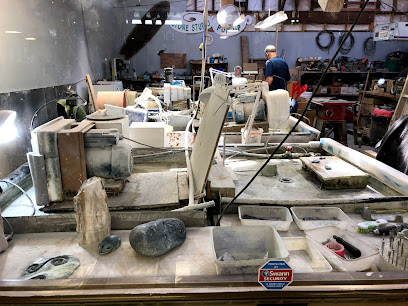
Farmers Gisborne
Explore Farmers Gisborne: your ultimate shopping destination for fashion, home goods, and local treasures in New Zealand.

Grant Bros Homeware & Gifts
Explore unique home goods, candles, and gifts at Grant Bros Homeware & Gifts in Gisborne, a treasure trove of local charm and craftsmanship.
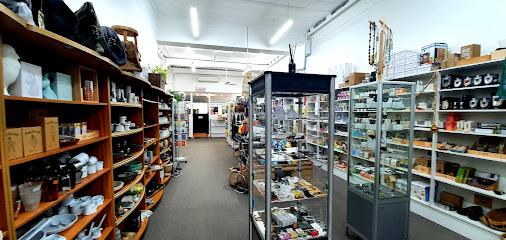
Postie Gisborne
Discover a wide range of stylish clothing for all ages at Postie Gisborne - your go-to destination for family fashion.
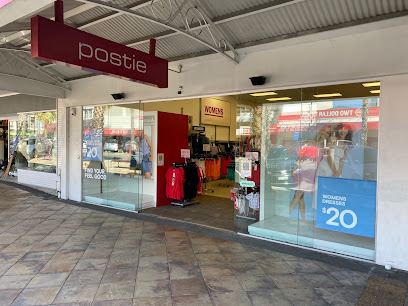
Cotton On
Explore the latest fashion trends at Cotton On in Gisborne, your go-to destination for stylish clothing and accessories for all ages.
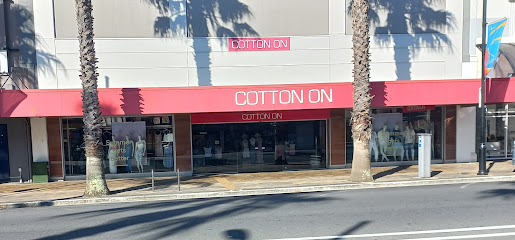
Art Fun Wear Gisborne
Explore a world of fashion at Art Fun Wear, Gisborne's eclectic clothing store featuring unique styles and local artistry.

Sequence Surf Shop
Explore the ultimate surf shop in Gisborne, offering top-notch boards, trendy apparel, and a vibrant surfing community.
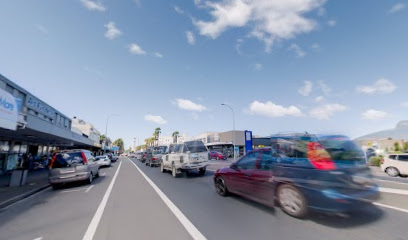
Gizzy Gifts And More
Explore Gizzy Gifts And More for unique souvenirs and local crafts in Gisborne, capturing the spirit of New Zealand's vibrant culture.
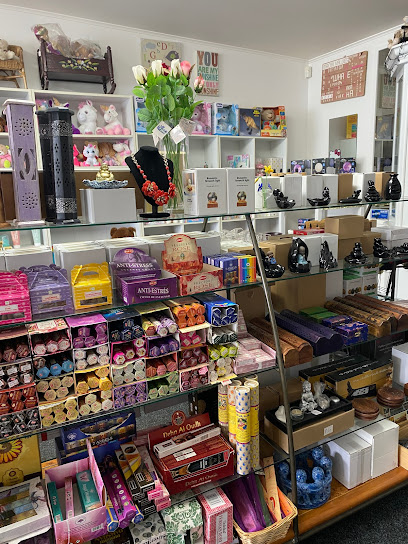
Just Jeans Gisborne
Explore Just Jeans Gisborne for trendy denim wear and stylish clothing, blending comfort and fashion in New Zealand's vibrant Gisborne.
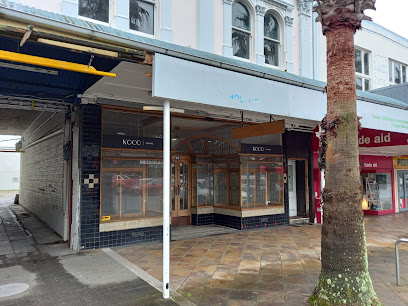
The WorkShop
Discover unique local crafts and unforgettable souvenirs at The WorkShop, Gisborne's premier gift shop celebrating New Zealand's artistic talents.
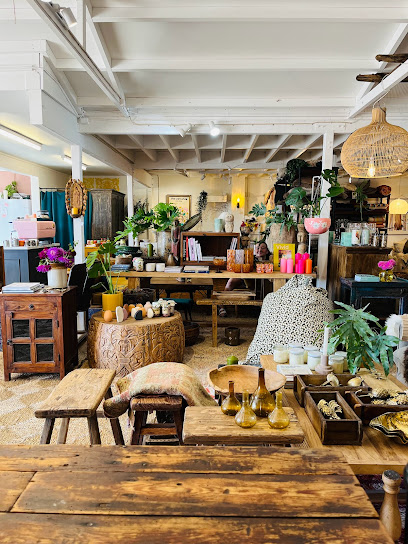
Kingpin
Discover unique fashion at Kingpin, Gisborne's premier clothing store offering a blend of local flair and contemporary styles for every wardrobe.
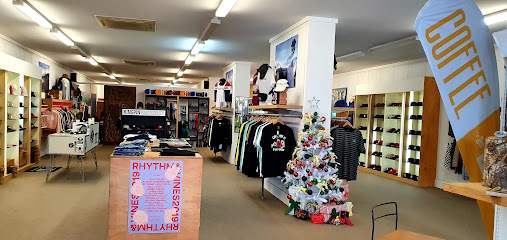
Crystal Clear
Explore Crystal Clear, the go-to gift shop for unique souvenirs and locally crafted treasures that embody the spirit of your travels.
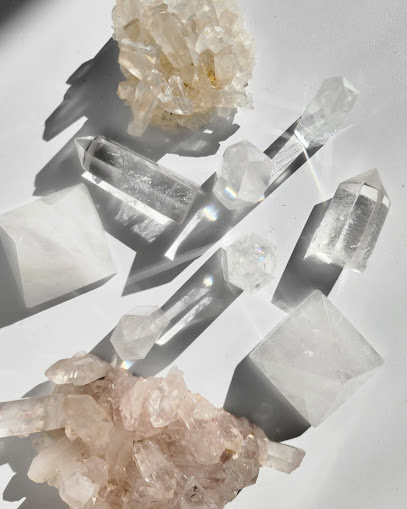
Habitat for Humanity ReStore - Gisborne
Explore the Habitat for Humanity ReStore in Gisborne for a unique shopping experience that supports a charitable cause while discovering hidden treasures.
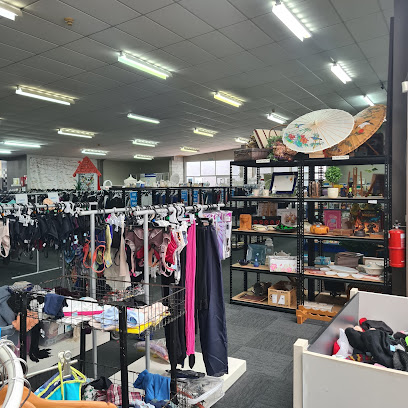
Essential bars & hidden hideouts
The Rivers Restaurant and Bar
Discover the flavors of Gisborne at The Rivers Restaurant and Bar, where local produce meets a welcoming atmosphere for an unforgettable dining experience.
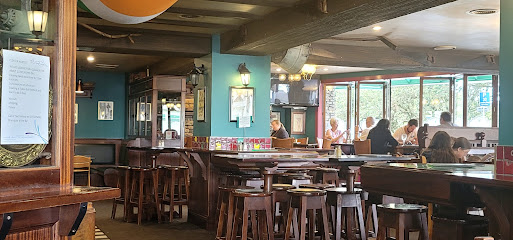
Wharf Bar & Grill
Experience the best of Gisborne's culinary scene with stunning ocean views at Wharf Bar & Grill, a must-visit destination for food-loving tourists.
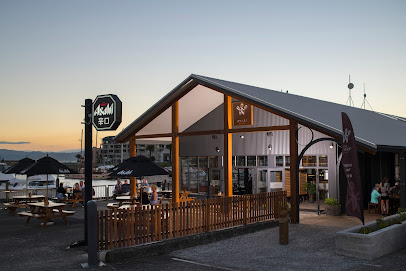
The Works
Discover The Works in Gisborne, where local flavors meet stunning coastal views in a delightful dining atmosphere.
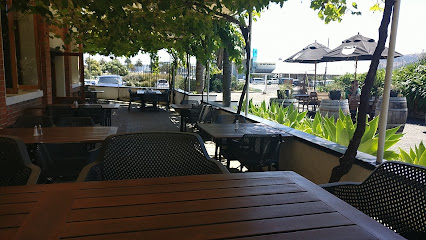
Lone Star Gisborne
Experience the essence of New Zealand at Lone Star Gisborne, where delicious food meets a lively bar atmosphere with stunning coastal views.
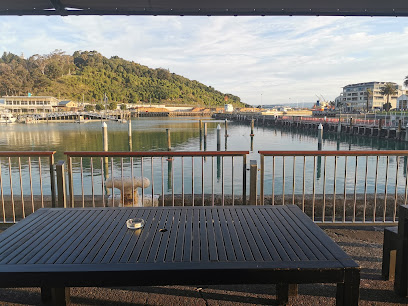
Verve Cafe & Bar
Discover the perfect blend of casual dining and vibrant atmosphere at Verve Cafe & Bar, Gisborne's culinary gem for breakfast and drinks.
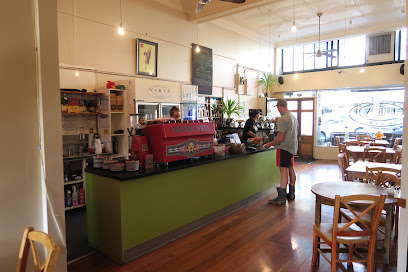
Smash Palace
Experience the local vibe at Smash Palace, Gisborne's favorite bar for craft beverages and vibrant atmosphere.
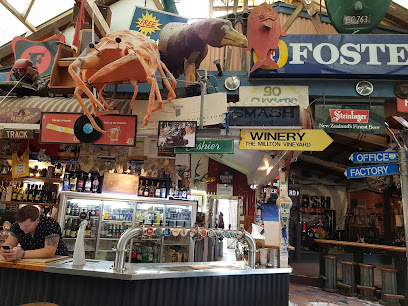
The Tav
Discover the charm of The Tav, a cozy pub in Gisborne offering delicious food, local brews, and a vibrant atmosphere perfect for relaxation.

Bushmere Arms
Experience the warmth and charm of Bushmere Arms, Gisborne's beloved pub, offering local brews, hearty meals, and a friendly atmosphere.
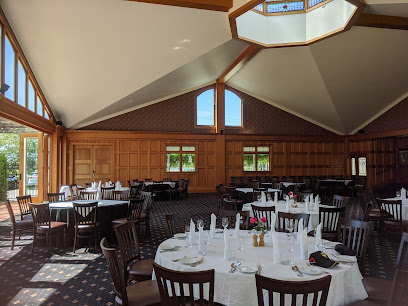
Gisborne Cosmopolitan Club
Experience the vibrant social scene of Gisborne at the Cosmopolitan Club, where delicious dining and community spirit come together.
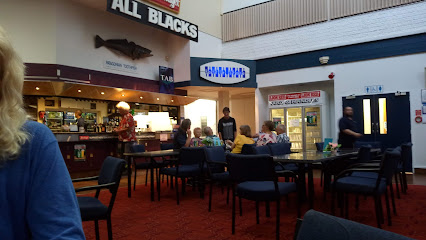
Ussco Bar & Bistro
Discover the culinary artistry of Ussco Bar & Bistro in Gisborne, where local flavors meet exceptional dining experiences.
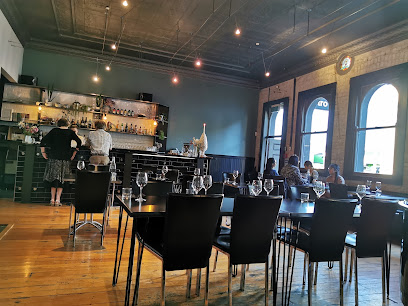
Crawford Road Kitchen
Experience the best of New Zealand cuisine at Crawford Road Kitchen, Gisborne's favorite dining destination by the Inner Harbour.
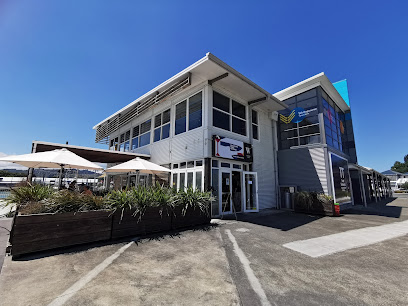
Sunshine Brewery
Discover the vibrant taste of Gisborne at Sunshine Brewery, where craft beer and gourmet pizza come together in a charming setting.
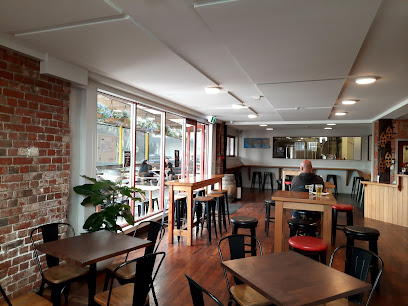
Jolly Stockman Hotel
Discover the perfect blend of relaxation and local culture at Jolly Stockman Hotel in Gisborne, offering cozy lodging and a vibrant bar atmosphere.
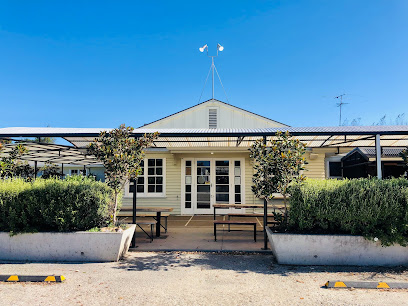
Shipwreck Bar
Experience the vibrant atmosphere of Shipwreck Bar in Gisborne, where delightful drinks and local charm come together in a nautical setting.
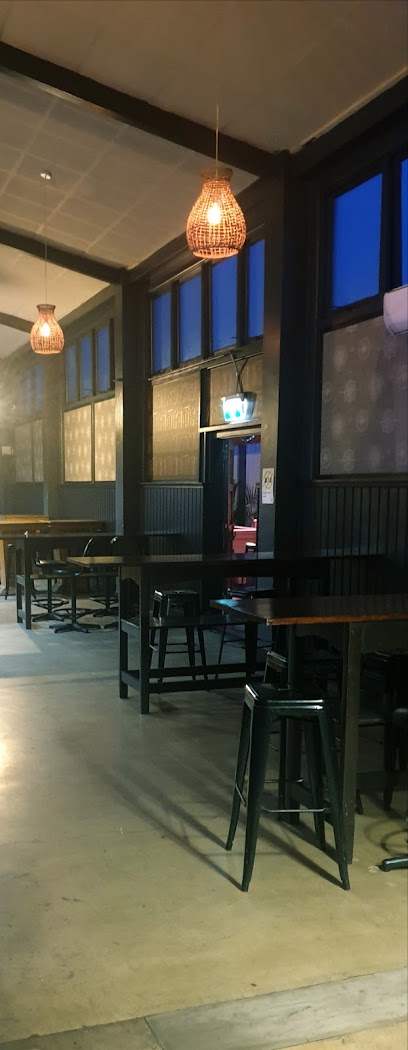
Local Phrases
-
- HelloKia ora
[kee-ah oh-rah] - GoodbyeHaere rā
[high-ree rah] - YesĀe
[eye] - NoKāo
[ka-oh] - Please/You're welcomeTēnā koe
[ten-ah koh-eh] - Thank youKia ora
[kee-ah oh-rah] - Excuse me/SorryAroha mai
[ah-roh-hah my] - How are you?Kei te pēhea koe?
[keh-ee teh pay-heh-ah koh-eh] - Fine. And you?Rawe. Ā koe?
[rah-weh. eye koh-eh] - Do you speak English?Kōrerotia te reo Pākehā e koe?
[koh-reh-raw-tee-ah teh reh-oh pah-keh-hah eh koh-eh] - I don't understandKāore au e rapu nei
[ka-oh-reh oh eh rah-poo nay]
- HelloKia ora
-
- I'd like to see the menu, pleaseMe āta titiro i te menewa, tēnā
[meh ah-tah tee-tee-roh ee teh meh-neh-wah, ten-ah] - I don't eat meatKāore au e kai kau
[ka-oh-reh oh eh kai cow] - Cheers!Chur!
[chur] - I would like to pay, pleaseMe āta utu, tēnā
[meh ah-tah oo-too, ten-ah]
- I'd like to see the menu, pleaseMe āta titiro i te menewa, tēnā
-
- Help!Āwhina!
[eye-fee-nah] - Go away!Haere atu!
[high-ree ah-too] - Call the Police!Karanga atu ki te Pirihimana!
[kah-rung-ah ah-too kee teh pee-ree-hee-mah-nah] - Call a doctor!Karanga atu ki te rata!
[kah-rung-ah ah-too kee teh rah-tah] - I'm lostI wareware ahau
[ee wah-reh-wah-reh ah-how] - I'm illKua mate ahau
[koo-ah mah-teh ah-how]
- Help!Āwhina!
-
- I'd like to buy...Ka hiahia au ki te hoko...
[kah hee-ah-hee-ah oh kee teh hoh-koh] - I'm just lookingKei te titiro ahau
[keh-ee teh tee-tee-roh ah-how] - How much is it?He aha te utu?
[heh ah-hah teh oo-too] - That's too expensiveHe roa rawa te utu
[heh roh-ah rah-wah teh oo-too] - Can you lower the price?Ka taea e koe te whakaiti i te utu?
[kah tie-ah eh koh-eh teh fah-kigh-tee ee teh oo-too]
- I'd like to buy...Ka hiahia au ki te hoko...
-
- What time is it?He aha te wā?
[heh ah-hah teh wah] - It's one o'clockKotahi noa iho
[koh-tah-hee noh-ah ee-hoh] - Half past (10)Tekau karaka
[teh-kow kah-rah-kah] - MorningAhiahi
[ah-hee-ah-hee] - AfternoonAta mārie
[ah-tah mah-ree-eh] - EveningPō
[poh] - YesterdayIrāmutu
[ee-rah-moo-too] - TodayTēnei rā
[ten-eh-ee rah] - TomorrowĀpōpō
[eye-poh-poh] - 1Tahi
[tah-hee] - 2Rua
[roo-ah] - 3Toru
[toh-roo] - 4Whā
[fah] - 5Rima
[ree-mah] - 6Ono
[oh-noh] - 7Whitu
[fee-too] - 8Waru
[wah-roo] - 9Iwa
[ee-wah] - 10Tekau
[teh-kow]
- What time is it?He aha te wā?
-
- Where's a/the...?Kei hea te...?
[keh-ee heh-ah teh] - What's the address?He aha te wāhitau?
[he-ah ah-hah teh wah-hee-tow] - Can you show me (on the map)?Ka taea e koe te whakaatu ki ahau (i runga i te mahere)?
[kah tie-ah eh koh-eh teh fah-kah-ah-too kee ah-how (ee roon-gah ee teh mah-heh-reh)] - When's the next (bus)?Āhea te (pahi) e whai mai ana?
[eye-heh teh (pah-hee) eh fah-ee my ah-nah] - A ticket (to ....)He tiki (ki ....)
[heh tee-kee (kee ....)]
- Where's a/the...?Kei hea te...?
History of Gisborne
-
The rich history of Gisborne begins with the arrival of the Māori people, who are believed to have settled in the area over 700 years ago. The region, known to the Māori as Tūranga-nui-a-Kiwa, became an important settlement due to its fertile lands and abundant seafood. The local iwi (tribes) like Ngāti Porou and Te Aitanga-a-Māhaki have deep-rooted connections with the land, which are reflected in the area's many marae (meeting grounds) and cultural landmarks.
-
Gisborne holds a significant place in New Zealand's European history as the first place where Captain James Cook set foot on New Zealand soil. On October 8, 1769, Cook and his crew aboard the HMS Endeavour landed at Kaiti Beach. This event marked the beginning of a new era of exploration and interaction between Europeans and Māori. The Cook Landing Site National Historic Reserve commemorates this pivotal moment in history.
-
The early 19th century saw the Musket Wars, a series of conflicts among Māori iwi exacerbated by the introduction of muskets by European traders. These wars significantly impacted the Gisborne region, leading to shifts in power and the displacement of various tribes. The aftermath of the Musket Wars saw the consolidation of territories and the establishment of new tribal boundaries.
-
During the mid-19th century, the Gisborne region found itself entangled in the New Zealand Wars, a series of conflicts between the Māori and the British Crown. The wars were primarily over land disputes and sovereignty. The Battle of Waerenga-a-Hika in 1865 was a significant event in the area, where government forces clashed with Māori resisting land confiscation. This conflict had lasting effects on the local population and land ownership.
-
In the late 19th century, Gisborne began to develop as a significant port town, thanks to its strategic coastal location. The establishment of the harbor allowed for the export of wool, meat, and other agricultural products, spurring economic growth. Infrastructure improvements, including the construction of the railway in 1902, further boosted Gisborne’s importance as a trade hub.
-
World War II had a profound impact on Gisborne, as it did on the rest of New Zealand. Many local men enlisted and fought overseas, while the town itself played a role in the war effort by providing agricultural produce and other resources. The war also accelerated social changes, including the integration of women into the workforce and the growth of urban areas.
-
Today, Gisborne is known for its vibrant cultural scene and economic diversity. The region is celebrated for its wine production, particularly Chardonnay, and hosts numerous festivals and events that draw visitors from around the world. The Tairāwhiti Arts Festival and Rhythm and Vines music festival are just two examples of how Gisborne has become a cultural hotspot. The city also continues to honor its rich Māori heritage through various cultural centers and events.
Gisborne Essentials
-
Gisborne is located on the east coast of New Zealand's North Island. The closest major airport is Gisborne Airport (GIS), which has regular flights from Auckland and Wellington. Alternatively, you can drive to Gisborne from major cities such as Auckland (approximately 6 hours) or Wellington (approximately 7 hours). Inter-city bus services are also available, offering a scenic route through New Zealand's beautiful landscapes.
-
Gisborne is a relatively small city, making it easy to get around. Renting a car is a convenient option, especially if you plan to explore the surrounding areas. Local bus services are available for getting around the city, and taxis can be found at major points like the airport and city center. Biking is also a popular mode of transport, with several bike rental shops available.
-
The official currency in New Zealand is the New Zealand Dollar (NZD). Credit and debit cards are widely accepted in most businesses, including hotels, restaurants, and shops. ATMs are readily available throughout Gisborne for cash withdrawals. It is advisable to carry some cash for use in smaller establishments or rural areas where card payments might not be accepted.
-
Gisborne is generally a safe destination for tourists. However, as with any travel destination, it is essential to take standard precautions. Avoid walking alone at night in unfamiliar areas and keep an eye on your belongings in crowded places. Areas like the central business district are generally safe, but it's always wise to stay vigilant. Crime targeting tourists is rare but not unheard of.
-
In case of emergency, dial 111 for immediate assistance. This number will connect you to police, fire, and medical services. Gisborne Hospital provides emergency medical care, and there are several pharmacies in the city for minor health concerns. It is recommended to have travel insurance that covers medical emergencies.
-
Fashion: Do dress casually and comfortably. Gisborne has a laid-back, beach-town vibe. Avoid overly formal attire unless attending a specific event. Religion: Do respect local customs and traditions, particularly when visiting Marae (Māori meeting grounds). Public Transport: Do be courteous and respectful to drivers and other passengers. Don’t eat or drink on public buses. Greetings: Do greet people with a smile and a friendly 'Kia Ora' (hello in Māori). Eating & Drinking: Do try local cuisine and wines, and don’t forget to try the famous Gisborne Chardonnay. Avoid littering and be mindful of the environment.
-
To experience Gisborne like a local, visit the Farmers' Market held every Saturday morning, where you can buy fresh produce and local crafts. Engage with locals, who are known for their hospitality and friendliness. Explore the local beaches and take part in water activities like surfing and fishing. Don’t miss out on visiting the Eastwoodhill Arboretum, the National Arboretum of New Zealand, which offers beautiful walking trails and picnic spots.
Trending Landmark in Gisborne
-
The Works
-
Waikanae Beach TOP 10 Holiday Park
-
Tairawhiti Museum
-
Eastwoodhill National Arboretum of NZ
-
Gisborne Farmers' Market
-
Titirangi Reserve
-
Rere Falls
-
Gisborne isite Visitor Information Centre
-
Ussco Bar & Bistro
-
Dome Cinema
-
Gisborne Hunting & Fishing New Zealand
-
That Hangi Place
-
Captain Cook Statue
-
Muirs Bookshop
-
Zephyr Wainui
Nearby Cities to Gisborne
-
Things To Do in Napier
-
Things To Do in Rotorua
-
Things To Do in Taupo
-
Things To Do in Tauranga
-
Things To Do in Hamilton
-
Things To Do in Palmerston North
-
Things To Do in Whanganui
-
Things To Do in Masterton
-
Things To Do in New Plymouth
-
Things To Do in Auckland
-
Things To Do in Wellington
-
Things To Do in Whangarei
-
Things To Do in Blenheim
-
Things To Do in Nelson
-
Things To Do in Paihia













